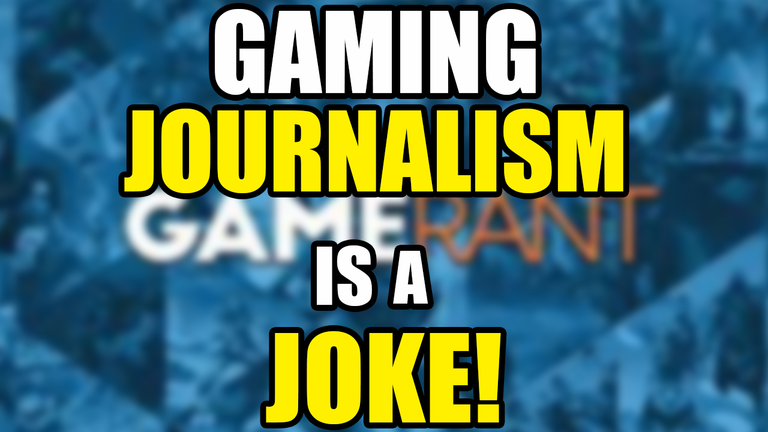
Video game journalists and lying go together like cookies and milk. It’s just a perfect combination. Mainstream video game outlets often want to things to look a certain, a way that fits their views even if it’s not true. In recent years, this has become a lot more apparent with gaming outlets more concerned about political views rather than the story they are focused on.
But before we get into this article, let me tell you what I think true journalism should be. True journalism is when you report on an event or story without bias. Where you list the facts and that is that. But true journalism is very hard to come by nowadays with most journalists either taking a left or right wing approach to their story.
Spanish
Los periodistas de videojuegos y la mentira van de la mano como las galletas y la leche. Es simplemente una combinación perfecta. Los principales medios de videojuegos a menudo quieren que las cosas se vean de cierta manera, de una manera que se ajuste a sus puntos de vista, incluso si no es cierto. En los últimos años, esto se ha vuelto mucho más evidente, ya que los medios de juegos están más preocupados por las opiniones políticas que por la historia en la que se centran.
Pero antes de entrar en este artículo, déjame decirte lo que creo que debería ser el verdadero periodismo. El verdadero periodismo es cuando informas sobre un evento o una historia sin prejuicios. Donde enumeras los hechos y eso es todo. Pero hoy en día es muy difícil encontrar verdadero periodismo, ya que la mayoría de los periodistas adoptan un enfoque de izquierda o de derecha en sus historias.

Image Source
When it comes to the video game industry, it is no different. The big outlets are hindered by politics. Where instead of judging a game based on whether it is actually good or not, they just shill for it even if the game doesn’t deserve it. This often happens with games that are left leaning and games that are right leaning often get criticized to all hell by these “journalists”.
Recently, I saw this happen with Dragon Age VG and Games rant. Games rant went full artard with the shilling. Claiming that the game was a lot better than it actually was weeks after the game came out. Almost daily, they would post an article praising the game in an attempt to get people to buy it. Even going so far as to give the game a 10/10 in their review.
Spanish
Cuando se trata de la industria de los videojuegos, no es diferente. Los grandes medios se ven obstaculizados por la política. Donde, en lugar de juzgar un juego en función de si es realmente bueno o no, simplemente lo aceptan incluso si el juego no lo merece. Esto sucede a menudo con los juegos que son de izquierda y los juegos que son de derecha a menudo son criticados por estos "periodistas".
Recientemente, vi que esto sucedió con Dragon Age VG y Games rant. La perorata de los juegos se volvió loca con el chelín. Afirmar que el juego era mucho mejor de lo que realmente era semanas después de su lanzamiento. Casi a diario publicaban un artículo elogiando el juego en un intento de conseguir que la gente lo comprara. Incluso llegando a darle al juego un 10/10 en su reseña.
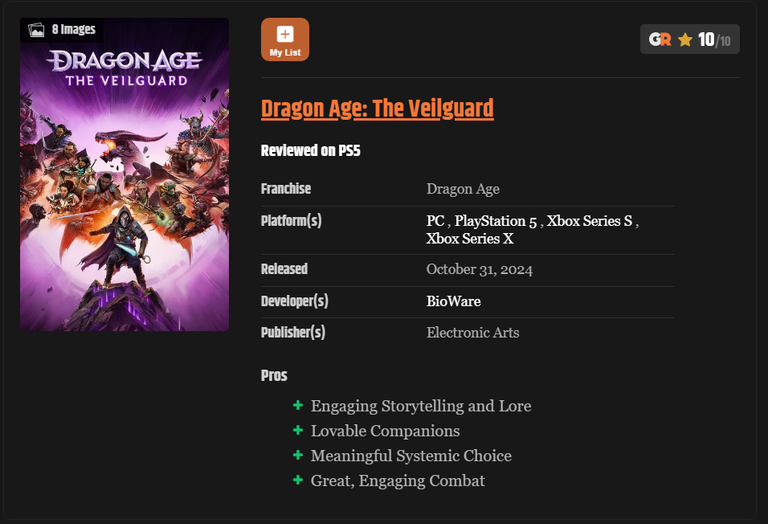
On the opposite end of this spectrum, we saw the same thing when Hogwarts Legacy was announced. These gaming outlets were more obsessed with the “fact” that JK Rowling was a “transphobe” rather than what the game was actually going to be like.
And how can we forget about Stellar Blade controversy? For those that don’t know up to the launch of this game, the developers promised the game would not be censored, and then they went and censored the game with a day 1 patch. Sites like Forbes, Kotaku, IGN, just to name a few, skated around the major issue and instead tried to pass the controversy off as that gamers were just pissed because they couldn’t see virtual titties.
This was far from the case. Gamers were mad because they were lied to. Shift Up had a huge anti censorship stance, or so it seemed. People were just mad at the censorship, not that it involved not seeing virtual boobs. This is often a trend we see in the west where things are “censored” as not to offend a small minority of people.
Spanish
En el extremo opuesto de este espectro, vimos lo mismo cuando se anunció Hogwarts Legacy. Estos medios de juegos estaban más obsesionados con el "hecho" de que JK Rowling era una "tránsfoba" que con cómo iba a ser realmente el juego.
¿Y cómo olvidarnos de la polémica de Stellar Blade? Para aquellos que no saben hasta el lanzamiento de este juego, los desarrolladores prometieron que el juego no sería censurado, y luego censuraron el juego con un parche del día 1. Sitios como Forbes, Kotaku, IGN, solo por nombrar algunos, eludieron el tema principal y en su lugar trataron de hacer pasar la controversia como si los jugadores simplemente estuvieran enojados porque no podían ver las tetas virtuales.
Esto estaba lejos de ser el caso. Los jugadores estaban enojados porque les mintieron. Shift Up tenía una enorme postura anticensura, o eso parecía. La gente simplemente estaba enojada con la censura, no porque implicara no ver tetas virtuales. Esta es a menudo una tendencia que vemos en Occidente, donde las cosas están “censuradas” para no ofender a una pequeña minoría de personas.
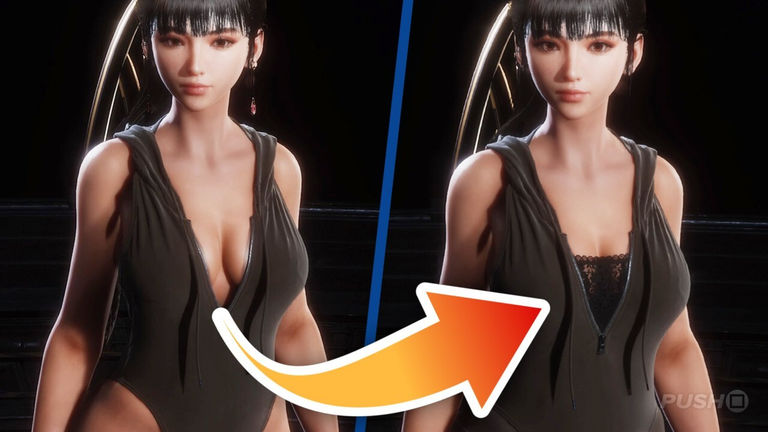
Image Source
There’s a bunch of other games I could mention like The Last of Us Part 2, where the scores for that game were overrated and anybody that hated the game were just “transphobic,". But I want to continue on and don’t have all night to spend typing this post out!
Video game Journalism nowadays is just a joke, plain and simple. We see these journalists lie and lie and lie, and those who don’t keep up with actual events in the industry eat it up believing everything these sites say. But how can they expect gamers to trust them when they are openly lying about the things they are posting?
Maybe they’re just stupid. Having an opinion about something is perfectly fine, being blinded by that opinion isn’t. I hated Veilguard, but loved the combat. I can say the same thing about The Last of Us Part 2. I’m not blinded by the hatred I have for those games.
Spanish
Hay muchos otros juegos que podría mencionar, como The Last of Us Part 2, donde las puntuaciones de ese juego estaban sobrevaloradas y cualquiera que odiara el juego era simplemente "transfóbico". Pero quiero continuar y no tengo todos ¡Noche para pasar escribiendo esta publicación!
El periodismo de videojuegos hoy en día es sólo una broma, simple y llanamente. Vemos a estos periodistas mentir y mentir y mentir, y aquellos que no se mantienen al día con los acontecimientos reales de la industria se comen todo lo que dicen estos sitios. Pero, ¿cómo pueden esperar que los jugadores confíen en ellos cuando mienten abiertamente sobre las cosas que publican?
Quizás simplemente sean estúpidos. Tener una opinión sobre algo está perfectamente bien, estar cegado por esa opinión no lo está. Odiaba Veilguard, pero amaba el combate. Puedo decir lo mismo de The Last of Us Part 2. No me ciega el odio que siento por esos juegos.
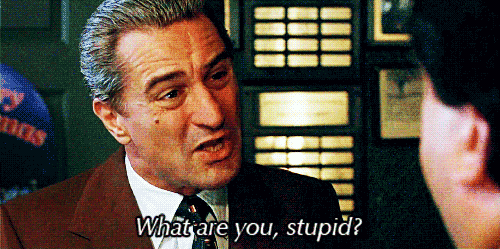
So what is the problem? Why are these journalists lying to their readers? Well, there could be a few reason.
One of which is because of political views. With Hogwarts Legacy we saw these sites take the side of the alphabet army, the only thing is when the game finally launched they couldn’t deny that it was actually good. But they made sure to mention how problematic JK Rowling was in their reviews.
The second reason is because they could be paid by these developers. Yes, it happens. Shocker, I know! These companies pay to have their games advertised on their sites, or even just for good publicity. So having to say anything bad about the “hand that feeds you” would be a big no no.
- The final reason, and the one I believe applies in most cases, is that the “journalists” aren’t actually fans of the games they are reporting on. It boggles my mind that anybody who was a fan of previous DA games could think Veilguard was good. Or that anyone who loved the previous Saints Row Games would think that the reboot was mediocre, and not outright horrible.
Spanish
Entonces ¿cuál es el problema? ¿Por qué estos periodistas mienten a sus lectores? Bueno, podría haber algunas razones.1. Uno de los cuales se debe a opiniones políticas. Con Hogwarts Legacy vimos a estos sitios ponerse del lado del ejército del alfabeto, lo único es que cuando finalmente se lanzó el juego no pudieron negar que en realidad era bueno. Pero se aseguraron de mencionar lo problemática que era JK Rowling en sus reseñas.2. La segunda razón es porque estos desarrolladores podrían pagarles. Sí, sucede. ¡Sorpresa, lo sé! Estas empresas pagan para que sus juegos se anuncien en sus sitios, o incluso simplemente por una buena publicidad. Entonces, tener que decir algo malo sobre la “mano que te alimenta” sería un gran no, no.3. La última razón, y la que creo que se aplica en la mayoría de los casos, es que los “periodistas” en realidad no son fanáticos de los juegos sobre los que informan. Me sorprende que cualquiera que fuera fanático de los juegos anteriores de DA pudiera pensar que Veilguard era bueno. O que cualquiera que amara los juegos anteriores de Saints Row pensaría que el reinicio fue mediocre y no absolutamente horrible.
When journalists are reporting on a game, it is my opinion, they should know everything about said game. Including the stuff going down in the universe. This would allow them to actually know if certain changes in an upcoming game are good or not. This goes doubly so for reviewers.
I’m going to end this on an example I saw today that really annoyed me. Ever since The Witcher 4 trailer premiered sites have been going on about how the upcoming game finally tells us what the canon ending for The Wild Hunt was… As if we didn’t already know.
You might remember a while ago I made a post titled The Canon Ending to The Witcher Trilogy which discusses the canon ending of The Witcher 3.
Spanish
En mi opinión, cuando ustedes, los periodistas, informan sobre un juego, deberían saber todo sobre dicho juego. Incluyendo las cosas que suceden en el universo. Esto les permitiría saber realmente si ciertos cambios en un próximo juego son buenos o no. Esto se aplica doblemente a los críticos.
Voy a terminar esto con un ejemplo que vi hoy y que realmente me molestó. Desde que se estrenó el tráiler de The Witcher 4, los sitios han estado hablando sobre cómo el próximo juego finalmente nos dice cuál fue el final canónico de The Wild Hunt... Como si aún no lo supiéramos.
Quizás recuerdes que hace un tiempo hice una publicación titulada [El final canónico de la trilogía de The Witcher](https://peakd.com/hive-140217/@gamergeek56/the-canon-ending-to-the-witcher-trilogy- or-or-el-canon-que-termina-con-la-trilogia-de-witcher-or-eng-esp) que analiza el final canónico de The Witcher 3.
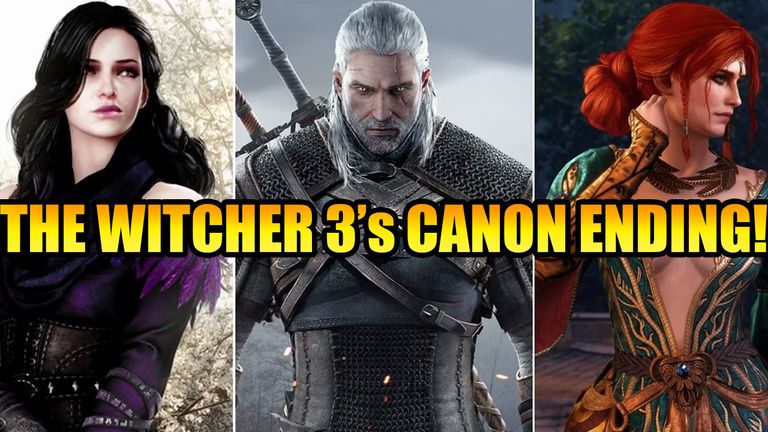
In the post I talk about how the canon ending is Ciri becoming a Witcher with Geralt being in a romance with Yenn. Now how I could know this a year ago? Well, it’s because of the comics. The comics were co created with CDPR and one takes place after the events of TW3 when Ciri and Geralt are hunting a Striga. If these sites actually knew what they were talking about, they’d know TW4 trailer never revealed anything new, like they are claiming.
Spanish
En la publicación hablo de cómo el final del canon es que Ciri se convierte en Witcher y Geralt tiene un romance con Yenn. ¿Cómo pude saber esto hace un año? Bueno, es por los cómics. Los cómics fueron cocreados con CDPR y uno tiene lugar después de los eventos de TW3 cuando Ciri y Geralt están cazando una Striga. Si estos sitios realmente supieran de qué están hablando, sabrían que el avance de TW4 nunca reveló nada nuevo, como afirman.
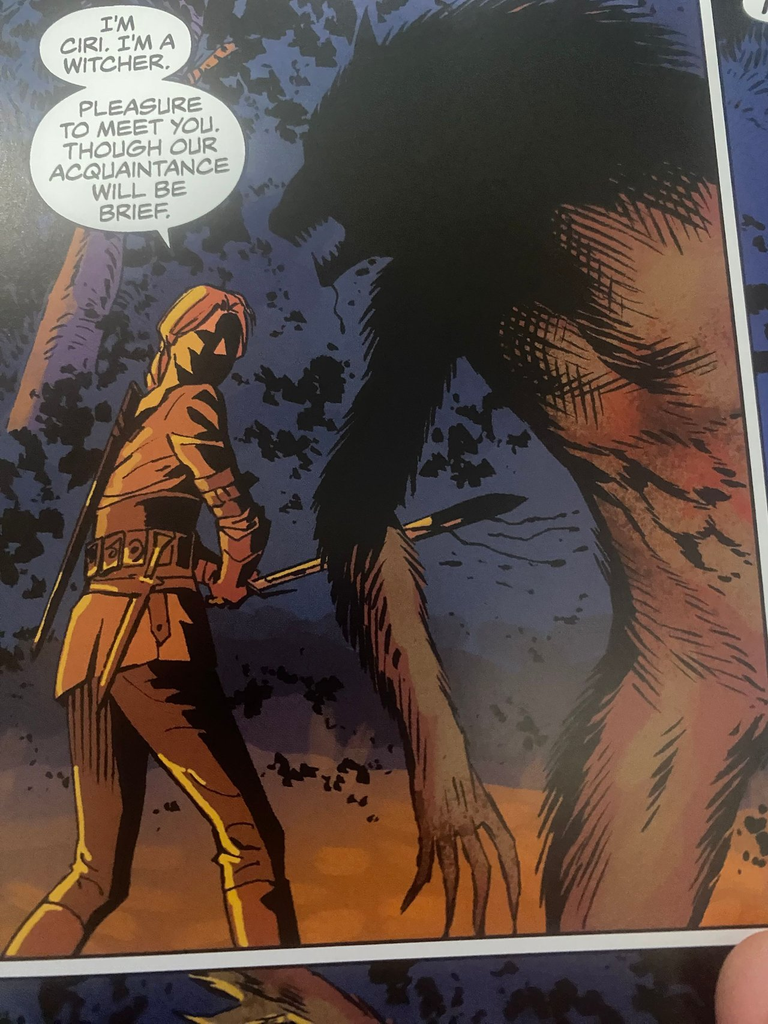
Video game journalism is honestly a joke nowadays. I find myself more than frustrated when I read a new article. Gone are the days of honest reviews and unbiased posts.
Spanish
Sinceramente, el periodismo de videojuegos es una broma hoy en día. Me siento más que frustrado cuando leo un artículo nuevo. Atrás quedaron los días de reseñas honestas y publicaciones imparciales.
Good points! A pleasure to read. 😃
Estoy 11000% de acuerdo. Aló que planteas , es muy molesto todo ese lada sucio e hipócrita que se muestra, todo por qué??
Por eso prefiero leer una reseña de algún jugador random que de alguien conocido ya por los medios o los sitios supuestamente especializados en el tema.
Eso es lo mismo conmigo. O debería decir que eso era lo que yo hacía. ¡Ahora solo me juzgo por los avances y por cómo se ve el ciclo de desarrollo sobre si quiero probar un juego o no!